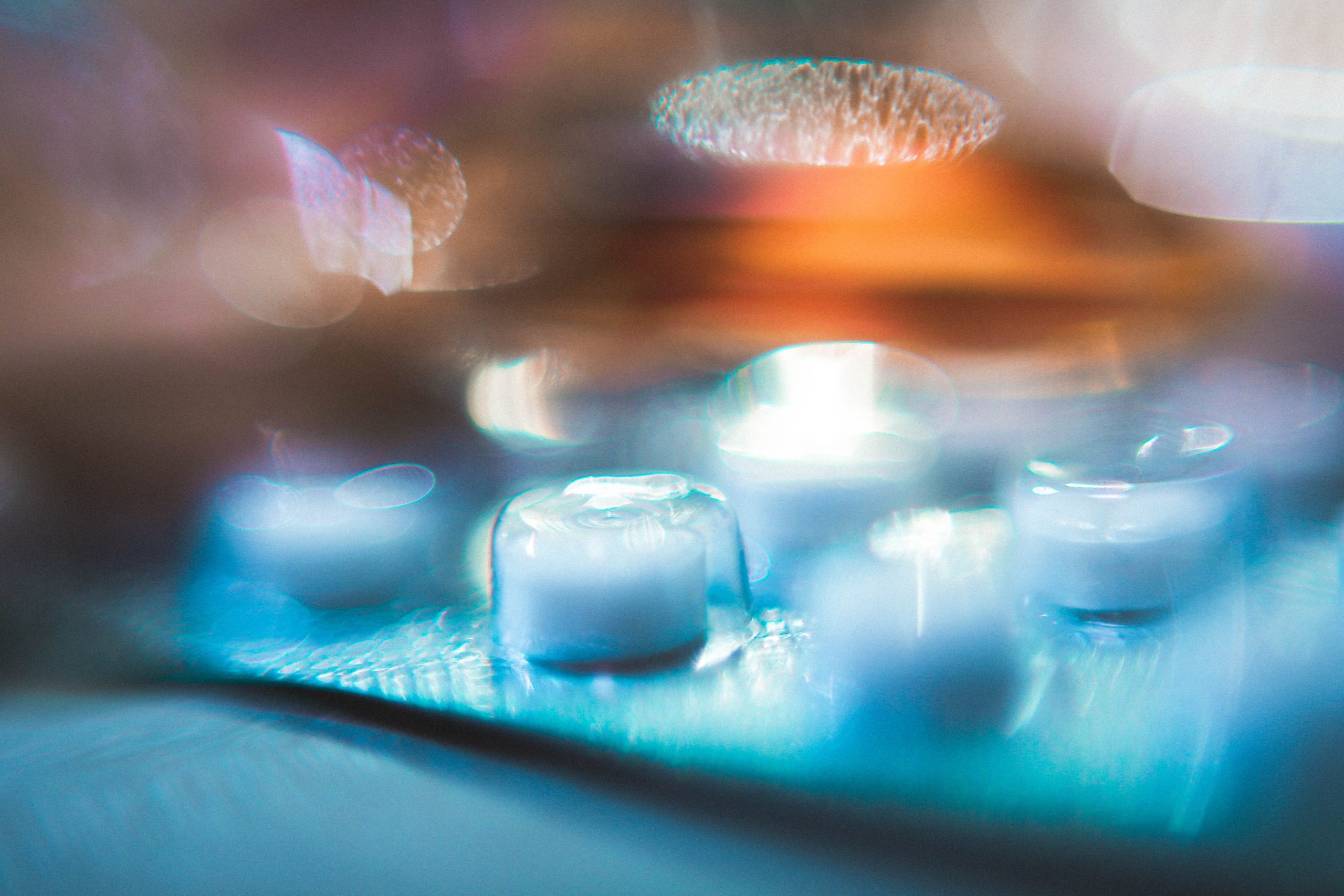Are you looking for a way to optimize your health and boost your immune system? Look no further than probiotics, prebiotics, and postbiotics! These three powerhouse components work together in harmony to promote gut health and overall well-being. In this guide, we’ll break down what each of these terms mean, how they work together, the benefits they provide, and how you can incorporate them into your diet for optimal results. So grab a cup of tea (or kombucha!) and get ready to learn about the wonderful world of probiotics, prebiotics, and postbiotics.
What are Probiotics and Prebiotics?
Probiotics are living microorganisms that, when consumed in adequate amounts, confer health benefits to the host. They are often called “good bacteria” because they help balance out the harmful bacteria that can live in our gut. Probiotics can be found naturally in some foods such as yogurt, kefir, sauerkraut, and kimchi.
Prebiotics on the other hand are non-digestible fibers that serve as food for probiotics. In essence, prebiotics act as a fertilizer for these good bacteria by promoting their growth and survival in our gut. Prebiotics can be found naturally in foods like chicory root, garlic, onions, and bananas.
The combination of consuming both probiotics and prebiotics is known as synbiotic therapy – this approach allows you to maximize the benefits of each component working together synergistically.
Incorporating probiotic and prebitoic sources into your diet is an easy way to promote optimal gut health which has been linked to improved digestion,fewer infections,supporting a healthier immune system ,and even mental wellness!
What are Postbiotics?
Postbiotics are a relatively new term in the world of gut health and microbiome research. They refer to the substances or metabolites produced by probiotics during their fermentation process. These postbiotic compounds are thought to play an important role in maintaining gut health, immune function, and overall well-being.
Unlike probiotics and prebiotics, postbiotics do not contain live bacteria themselves. Instead, they are created as a result of the fermentation process that occurs when probiotic bacteria break down nutrients from food sources such as dietary fiber.
Some common types of postbiotic compounds include short-chain fatty acids (SCFAs), bacteriocins, and exopolysaccharides (EPS). SCFAs have been shown to reduce inflammation in the gut while also providing energy for colon cells. Bacteriocins are antimicrobial peptides that can help protect against harmful pathogens. And EPS may help improve intestinal barrier function.
Research on postbiotics is still in its early stages, but some studies suggest that they may offer unique benefits compared to probiotics or prebiotics alone. For example, because these compounds do not contain live bacteria themselves, they may be more stable and resistant to environmental stressors like heat or acid than traditional probiotic supplements.
While much more research is needed before we fully understand the potential benefits of postbiotics for human health, it seems clear that these metabolites represent an exciting new area of study within the field of microbiome research.
How do Probiotics, Prebiotics, and Postbiotics Work Together?
Probiotics, prebiotics, and postbiotics all play important roles in maintaining a healthy gut microbiome. Probiotics are live bacteria that can provide many benefits to the body when consumed in adequate amounts. Prebiotics are non-digestible fibers that feed the good bacteria already present in the gut.
Postbiotics are substances created by probiotics during fermentation that have potential health benefits on their own. Together, these three elements work symbiotically to promote optimal digestive function and overall well-being.
When you consume probiotic-rich foods or supplements, they travel through your digestive system until they reach your colon where most of our gut microbes reside. This is where the probiotics get to work, helping to balance out any harmful bacteria while also promoting immune function and nutrient absorption.
Prebiotic fibers help nourish these beneficial bacteria so they can thrive and multiply, leading to greater diversity within the microbiome which has been linked with improved mental health outcomes as well as other bodily functions such as metabolism and heart health.
Postbiotic metabolites produced during fermentation can offer unique anti-inflammatory properties among other advantages such as strengthening intestinal mucosa integrity or supporting circulation throughout organs like liver or brain tissue – ultimately improving immunity responses over time!
The Benefits of Probiotics, Prebiotics, and Postbiotics
Probiotics, prebiotics, and postbiotics offer a host of benefits for our gut health and overall well-being. Probiotics are live bacteria that help keep the digestive system healthy by balancing the good and bad bacteria in the gut. Prebiotics serve as food for probiotics, helping them grow and thrive in our gut. Postbiotics are metabolic byproducts produced by probiotics that have been shown to have many health-promoting effects.
One major benefit of these three components is their ability to improve digestion. By promoting healthy digestive function, they can help reduce bloating, gas, constipation, and diarrhea. They also aid in nutrient absorption from food which keeps us properly nourished.
In addition to improving digestion, they also play an important role in supporting a strong immune system. Probiotic strains such as Bifidobacterium lactis can stimulate immune cells while postbiotic metabolites like short-chain fatty acids have been shown to regulate inflammation within the body.
Not only do these three components support physical health but there has been evidence suggesting it may positively impact mental health too! Studies show improved mood regulation among those taking certain strains of probiotics regularly.
Ensuring a diet rich in foods high in beneficial microorganisms or even supplementing with tailored products can lead to significant improvements on your mind-body wellbeing journey!
The Best Probiotic, Prebiotic, and Postbiotic Foods
When it comes to incorporating probiotics, prebiotics and postbiotics into your diet, the best way to do so is through whole foods. These are some of the best options for each category:
Probiotic Foods:
– Yogurt: Look for varieties that contain live active cultures.
– Kefir: Similar to yogurt but more drinkable in texture.
– Kimchi: A spicy Korean fermented cabbage dish.
– Sauerkraut: Fermented cabbage with a sour taste.
– Tempeh: A type of fermented soybean cake.
Prebiotic Foods:
– Garlic: Contains inulin, a prebiotic fiber beneficial for gut health.
– Onions: Packed with fructooligosaccharides, another type of prebiotic fiber.
– Bananas: High in resistant starch which acts as food for good bacteria in the gut.
– Asparagus: Rich in both soluble and insoluble fibers that promote optimal digestive health.
Postbiotic Foods:
While there are no specific foods labeled as “postbiotics,” consuming probiotic and prebiotic-rich foods will naturally lead to an increase of these beneficial byproducts within your gut microbiome.
Incorporating these foods into your daily meals can help optimize your overall health from the inside out. Remember that variety is key when it comes to promoting diverse bacterial populations within your gut.
Supplements vs. Whole Foods
When it comes to getting probiotics, prebiotics, and postbiotics in your diet, you have the option of supplements or whole foods. Supplements can be a convenient way to get a concentrated dose of these beneficial bacteria and nutrients. However, there are some downsides to relying solely on supplements.
One downside is that not all supplements are created equal. Some may contain lower quality ingredients or strains of bacteria that don’t offer as many health benefits. It’s important to do your research and choose a reputable brand if you decide to take supplements.
Another issue with supplements is that they can be expensive over time compared to incorporating probiotic-rich whole foods into your diet. Eating fermented foods like yogurt, kimchi, sauerkraut, kefir, and kombucha can provide you with a variety of different strains of beneficial bacteria while also offering other valuable nutrients like fiber.
Additionally, consuming whole foods instead of relying on supplements allows for greater diversity in your microbiome since you’re exposing yourself to different types and amounts of bacteria from each food source.
While supplements can be useful in certain situations or for specific needs, incorporating whole foods into your diet is generally the more sustainable and cost-effective approach when it comes to achieving optimal gut health.
How to Get the Most Out of Probiotics, Prebiotics, and Postb
By incorporating probiotics, prebiotics, and postbiotics into your diet, you can proactively improve your gut health and overall well-being. Remember to choose a variety of whole foods that contain these beneficial compounds and consider supplementing with high-quality products when needed.
It’s important to listen to your body and make adjustments as necessary. Everyone’s microbiome is unique, so what works for one person may not work for another. Keep in mind that it may take some experimentation to find the right balance of probiotics, prebiotics, and postbiotics for optimal gut health.
With this guide in hand, you’re now equipped with the knowledge you need to start improving your gut health today!




